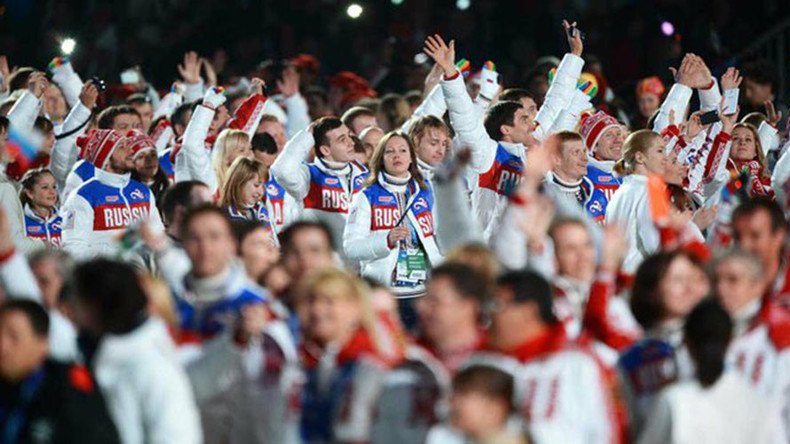IOC seeks 'legal options' of possible total ban on Russian team from Rio Olympics

The International Olympic Committee (IOC) is exploring legal options regarding the possibility of introducing a blanket ban on Russia competing at next month’s Olympics in Rio de Janeiro. However, it will also weigh up the legal right for the athletes to compete.
The IOC stopped short of issuing an outright ban, saying aside from exploring all legal avenues, it would also take into account a ruling from the Court of Arbitration for Sport (CAS), which is set to rule on whether Russian track and field athletes will be allowed to compete at this summer’s games.
The IOC “will explore the legal options with regard to a collective ban of all Russian athletes for the Olympic Games 2016 versus the right to individual justice. In this respect, the IOC will have to take the CAS decision on 21 July 2016 concerning the IAAF rules into consideration, as well as the World Anti-Doping Code and the Olympic Charter,” the statement of the Executive Board of the IOC reads.
The CAS opened its proceedings in Geneva on Tuesday, but is set to make a final ruling on Thursday on whether 68 athletes will be able to compete in the games, which start in the Brazilian city on August 5.
Russian Olympic Committee lambasts McLaren report, says full investigation neededhttps://t.co/LdwQ5po5K5
— RT Sport (@rtsportnews) July 19, 2016
Given the revelations in the McLaren report, which was released on Monday by the World Anti-Doping Agency, which said Russia was guilty of state-sponsored doping at the 2014 Winter Olympics, the IOC has also demanded that all Russian athletes that competed in the Sochi games should have their drug samples re-tested.
The McLaren report also stated that 15 Olympic medal winners from Russia were suspected to have had their doping samples switched to prevent positive tests and the IOC is demanding all the names should be made public.
WADA urges banning Russian athletes from all international events, including #Rio2016https://t.co/k3P0JI7s6a
— RT Sport (@rtsportnews) July 18, 2016
The IOC’s executive board also said it supported a recommendation to no longer perceive Russian athletes to be innocent before proven guilty in terms of doping.
“This means that the eligibility of each Russian athlete will have to be decided by his or her International Federation based on an individual analysis of his or her international anti-doping record,” the statement read.
“If you are assuming that all other athletes are clean, it’s a strange way of looking at it,” Perikles Simon, a sports medicine and doping researcher, told RT.
“It’s not only the Russian athletes that appear to be engaged in doping when they are at international competitions. There is hard evidence published on the UK Parliament’s home page about doping at the world athletics games in Daegu and the Pan-Arab games in 2011. It’s for sure that it is not only Russian athletes,” he added.
The IOC mentioned it had started proceedings against officials named in the report and they would not receive accreditation for the Rio Olympics.
In response, the Russian Sports Minister Vitaly Mutko says he is ready to send a Russian delegation to Rio consisting solely of athletes and coaches.
“I hope that the IOC and the Association of International Olympic Federations will look at our question and make a considered decision. If there are confirmed facts in the report regarding doping laws being broken then some sportsmen and officials should be punished,” he told Interfax.
The governing body for the Olympics also said it would not organize any sports events or meetings in Russia, which puts into question the 2019 Winter Universiade, planned to take place in the Siberian city of Krasnoyarsk.
Due to the detailed references to the manipulation of drugs samples in the McLaren report, the IOC has called on the federations connected with winter sports not to host major events in Russia, such as World Championships or World Cups, and to look for alternative countries.
Given that Russia hosts numerous winter sports events, such as World Cup events in biathlon, cross country skiing and speed skating, this is likely to have a significant knock-on effect if implemented.












